
Cape Three Points: Ghana's Coastal Gem
Cape Three Points is a serene and picturesque coastal haven located in the Western Region of Ghana. Known as the southernmost tip of Ghana, this destination offers a unique blend of natural beauty, rich history, and vibrant culture. The area is renowned for its lush greenery, pristine beaches, and the iconic lighthouse, which provides breathtaking panoramic views of the Atlantic Ocean. Visitors to Cape Three Points can indulge in a variety of outdoor activities. The beaches here are perfect for sunbathing, swimming, and surfing, with the warm waters and gentle waves creating an ideal environment for water sports. Nature enthusiasts will appreciate the nearby forest reserves, where they can embark on guided hikes to explore the diverse flora and fauna of the region. Bird watching is also a popular activity, as the area is home to several species of exotic birds. The village of Cape Three Points offers a glimpse into the local way of life, with friendly residents who are eager to share their culture and traditions. Tourists can visit the local markets to purchase handmade crafts and fresh produce or enjoy traditional Ghanaian cuisine at one of the village eateries. The area's rich history can be explored through visits to the old lighthouse, built by the British in 1925, which still stands as a testament to the region's colonial past.
Local tips in Cape Three Points
- Visit the lighthouse for stunning views and a bit of history. It's a short hike but worth it.
- Bring cash, as credit card facilities are limited in this rural area.
- Try local dishes at village eateries for an authentic Ghanaian culinary experience.
- Pack insect repellent for hikes in the forest reserves.
- Engage with local guides for bird watching and nature tours to make the most of your visit.
Cape Three Points: Ghana's Coastal Gem
Cape Three Points is a serene and picturesque coastal haven located in the Western Region of Ghana. Known as the southernmost tip of Ghana, this destination offers a unique blend of natural beauty, rich history, and vibrant culture. The area is renowned for its lush greenery, pristine beaches, and the iconic lighthouse, which provides breathtaking panoramic views of the Atlantic Ocean. Visitors to Cape Three Points can indulge in a variety of outdoor activities. The beaches here are perfect for sunbathing, swimming, and surfing, with the warm waters and gentle waves creating an ideal environment for water sports. Nature enthusiasts will appreciate the nearby forest reserves, where they can embark on guided hikes to explore the diverse flora and fauna of the region. Bird watching is also a popular activity, as the area is home to several species of exotic birds. The village of Cape Three Points offers a glimpse into the local way of life, with friendly residents who are eager to share their culture and traditions. Tourists can visit the local markets to purchase handmade crafts and fresh produce or enjoy traditional Ghanaian cuisine at one of the village eateries. The area's rich history can be explored through visits to the old lighthouse, built by the British in 1925, which still stands as a testament to the region's colonial past.
When is the best time to go to Cape Three Points?
Iconic landmarks you can’t miss
Fetish Priest Statue
Experience the rich cultural tapestry of Ghana at the Fetish Priest Statue, a historical landmark in Sekondi-Takoradi reflecting local spirituality and heritage.
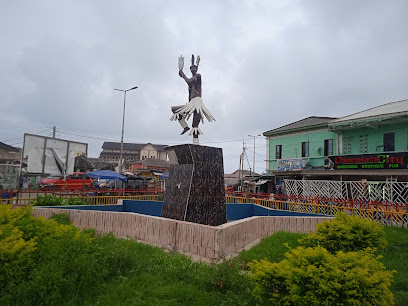
Escape3Points
Experience serene beaches and warm Ghanaian hospitality at Escape3Points, your ideal coastal retreat in Cape Three.
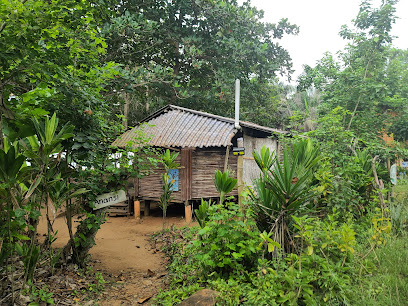
Around The Fish
Explore Sekondi-Takoradi's historical landmark, Around The Fish, and dive into Ghana's rich maritime culture and community spirit.
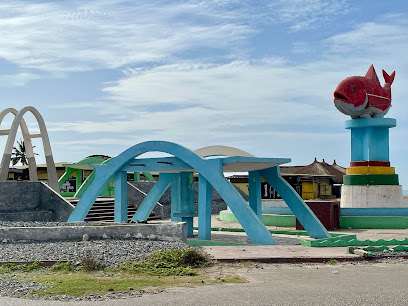
Fort Metal Cross | TortoisePath.com
Discover the historic Fort Metal Cross in Dixcove, a stunning fortress overlooking the Atlantic, rich in colonial history and natural beauty.
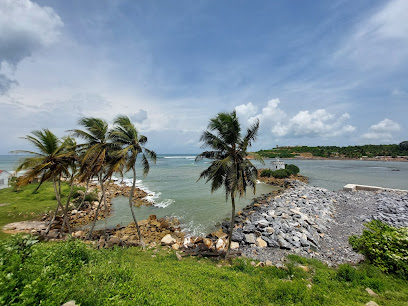
Fort Gross Friedricksburg
Discover the rich history of Fort Gross Friedricksburg in Princess Town, Ghana, a must-see historical site with breathtaking views and immersive guided tours.
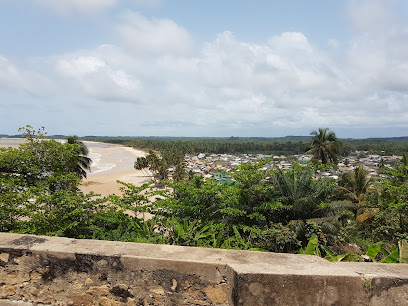
Cape Three Points Tourist Office
Explore the beauty of Cape Three Points with insights from the Tourist Office, your gateway to Ghana's stunning coastline and vibrant culture.
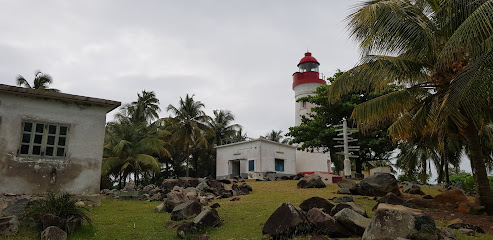
Escape 3 Points Ecolodge
Discover the serenity of Escape 3 Points Ecolodge in Accra, Ghana, where nature meets comfort for the ultimate travel experience.
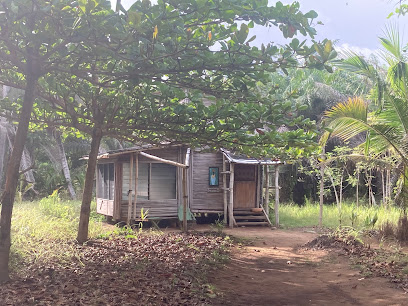
Fort Dorothea
Discover the enchanting ruins of Fort Dorothea in Akwidaa, Ghana, where history and breathtaking coastal views merge beautifully.
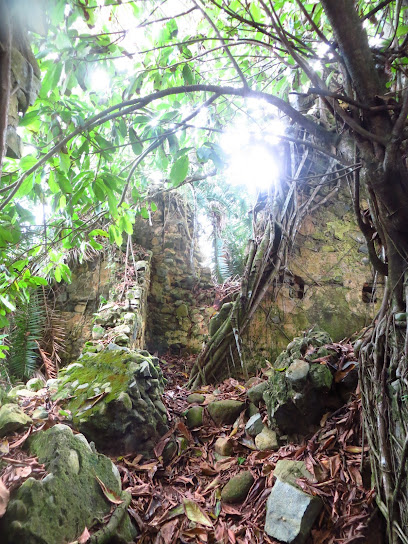
Unmissable attractions to see
Kumasi Zoological Gardens
Explore Kumasi Zoological Gardens, where Ghana's wildlife comes alive! A perfect family outing filled with fun, learning, and adventure.
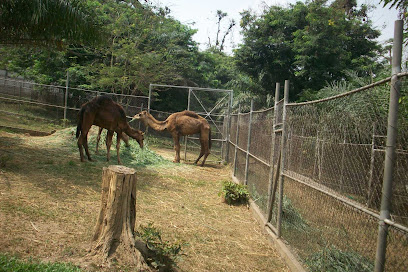
Museum for Science and Technology
Explore the Museum for Science and Technology in Accra, a captivating destination showcasing Ghana's scientific heritage and interactive exhibits for all ages.
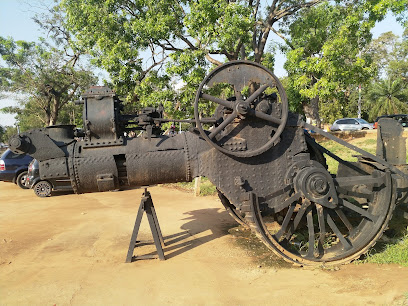
Bunso Eco Park (Bunso Arboretum)
Experience the beauty of nature at Bunso Eco Park, a serene retreat filled with adventure, wildlife, and breathtaking landscapes in Ghana.
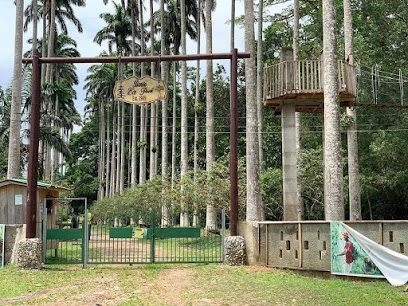
Nzulezo-Stilt Village Tour
Discover the breathtaking Nzulezo Stilt Village, a traditional community on Amansuri Lake, where culture and nature intertwine in Ghana's serene landscape.
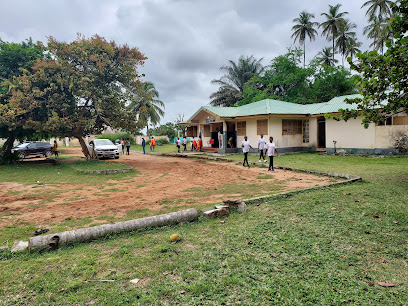
Kweikuma Park
Experience tranquility and community spirit at Kweikuma Park in Takoradi, a perfect retreat for relaxation and outdoor activities.
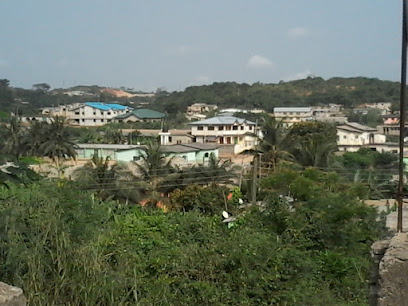
Fort Orange
Discover the historical charm of Fort Orange in Sekondi-Takoradi, a captivating fortress reflecting Ghana's colonial past and scenic coastal beauty.
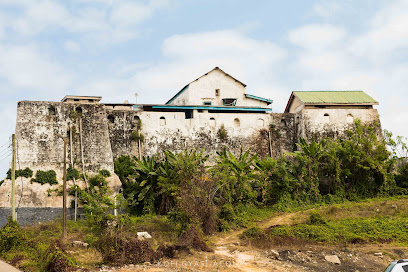
Takoradi Jubilee Park
Experience tranquility at Takoradi Jubilee Park, a lush green retreat in the heart of Takoradi, Ghana, perfect for relaxation and family fun.
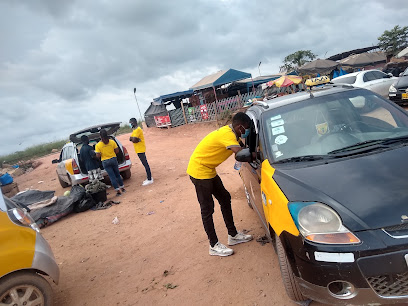
Butumagyabu Attaa Park
Discover tranquility at Butumagyabu Attaa Park, a lush oasis in Sekondi-Takoradi perfect for leisurely strolls, picnics, and nature appreciation.
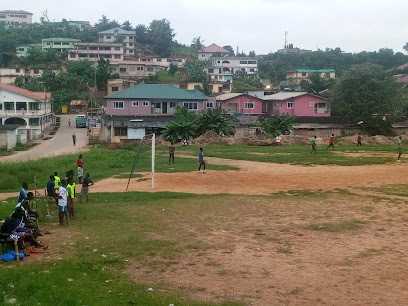
Fort Metal Cross | TortoisePath.com
Explore the historic Fort Metal Cross in Dixcove, a captivating fortress that reveals Ghana's rich colonial history and stunning coastal views.
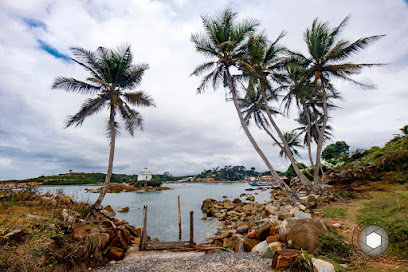
Kakum National Park Entrance
Explore Kakum National Park, Ghana's lush rainforest paradise with a thrilling canopy walkway and rich biodiversity waiting to be discovered.
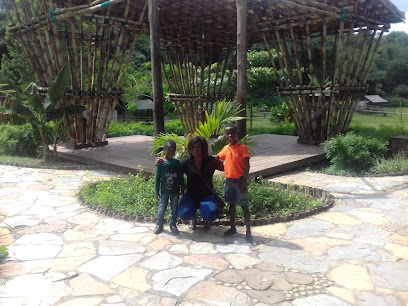
Heritage Fun Park
Heritage Fun Park in Takoradi offers a perfect blend of adventure and relaxation amidst stunning natural landscapes, ideal for family outings and cultural experiences.
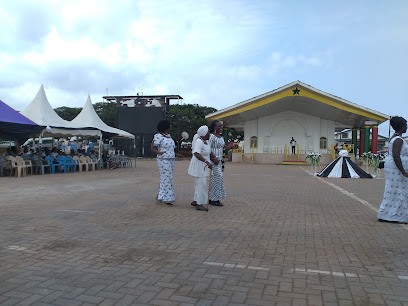
Fort Batenstein
Explore Fort Batenstein, a historical fortress in Butre, Ghana, that offers captivating views and insights into the region's colonial past.
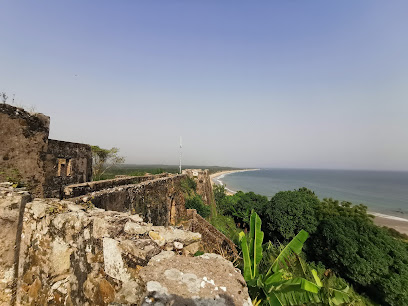
Bisa Aberwa Museum
Discover the captivating history and artistic treasures of Ghana at the Bisa Aberwa Museum in Takoradi, a cultural haven for every traveler.
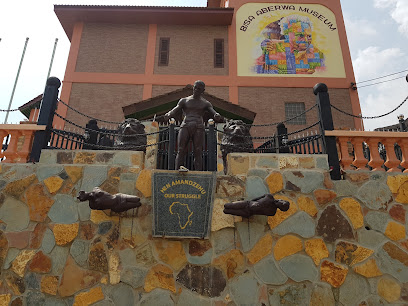
Ankasa Game Reserve & Nini-Suhien National Park
Explore the stunning biodiversity of Ankasa Game Reserve & Nini-Suhien National Park, a premier eco-tourism destination in Ghana.
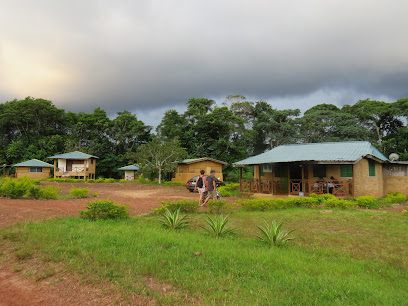
Laughing Goat Ghana
Explore Laughing Goat Ghana at Busua Beach, a vibrant spot for vegan dining, live music, and skateboarding fun in a stunning coastal paradise.
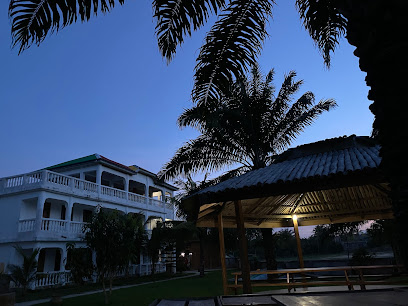
Essential places to dine
Capitol Cafe & Restaurant
Discover delightful flavors at Capitol Cafe & Restaurant in Accra – where local cuisine meets international flair.
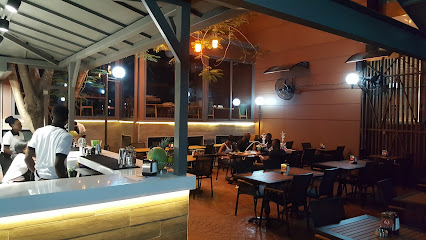
Becky Kay Restaurant and Bar
Discover delicious local cuisine at Becky Kay Restaurant and Bar in Cape Coast - a perfect blend of tradition and taste.
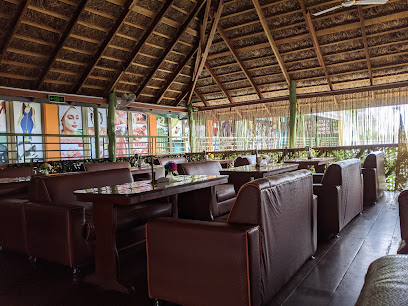
Da Breeze Bar & Restaurant
Experience authentic Ghanaian cuisine at Da Breeze Bar & Restaurant while enjoying breathtaking coastal views along Cape Coast.
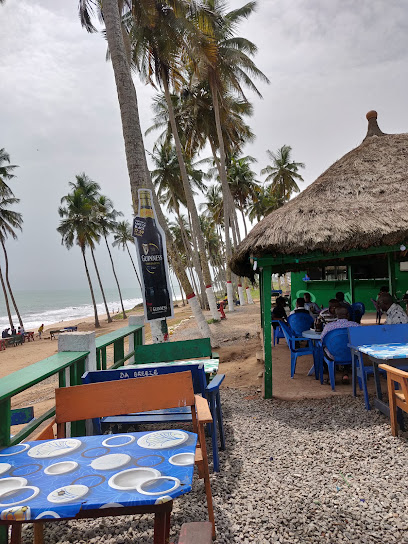
Solace Bar & Restaurant
Discover exquisite flavors at Solace Bar & Restaurant in Cape Coast – where delicious food meets stunning coastal views.
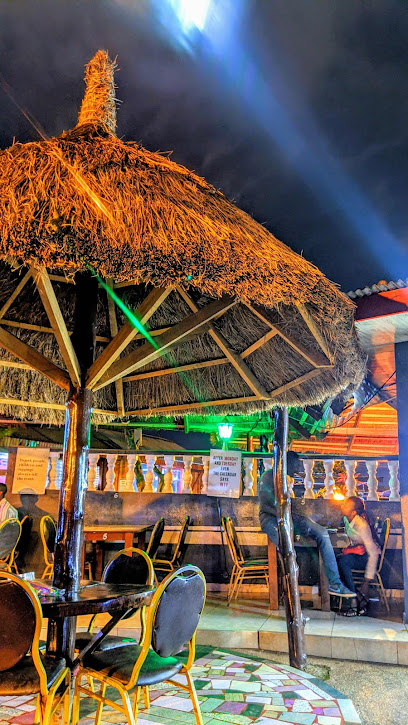
La Borracha
Experience authentic Mexican cuisine at La Borracha in Accra—where every bite transports you to Mexico's vibrant culinary scene.
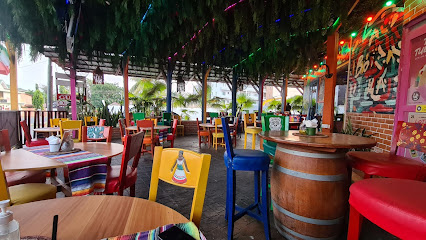
Sahara Spring Restaurant & Pub
Experience authentic Ghanaian cuisine at Sahara Spring Restaurant & Pub in Cape Coast – where every meal tells a story.
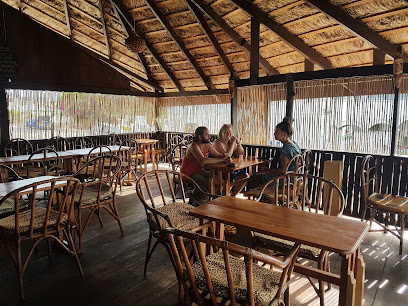
The Venue
Experience the vibrant flavors of Ghana at The Venue in Accra—a must-visit restaurant blending local delights with global cuisine.
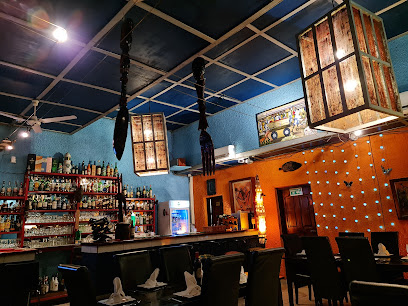
Noble House - Takoradi
Experience exquisite dining at Noble House - Takoradi, where authentic Ghanaian flavors meet contemporary culinary artistry.
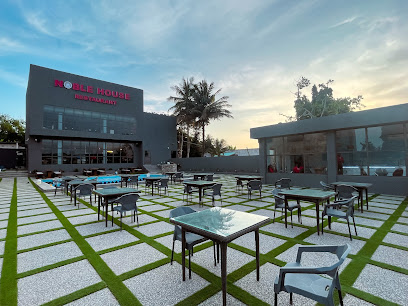
SMOOTH MOODS
Discover Smooth Moods in Madina - where authentic Ghanaian flavors meet warm hospitality in a vibrant setting.
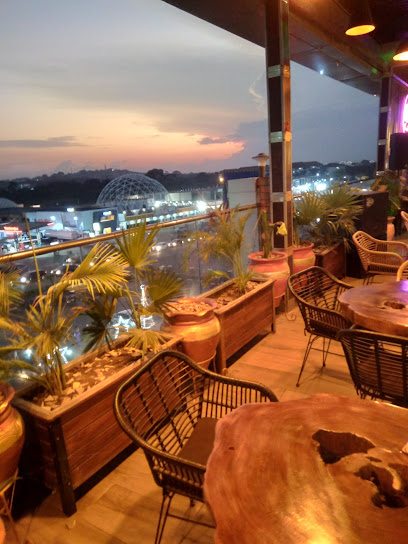
Somewhere in Kumasi
Discover Kumasi's culinary scene with local favorites and international delights at this vibrant restaurant offering authentic Ghanaian flavors.
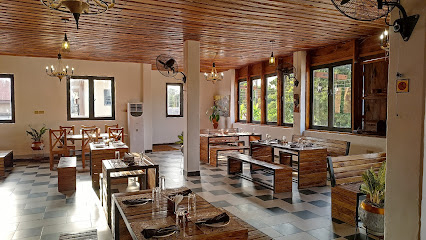
The Trip Bar & Restaurant, Aya Community Centre
Experience authentic Ghanaian cuisine at The Trip Bar & Restaurant in Azulewanu's vibrant Aya Community Centre.
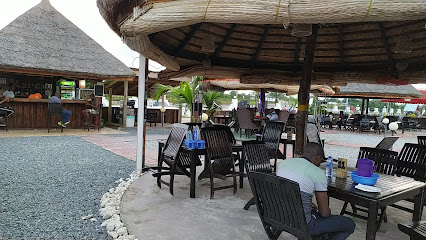
Seoul Grill Restaurant
Experience authentic Korean cuisine at Seoul Grill Restaurant in Kotoka International Airport - where tradition meets convenience.
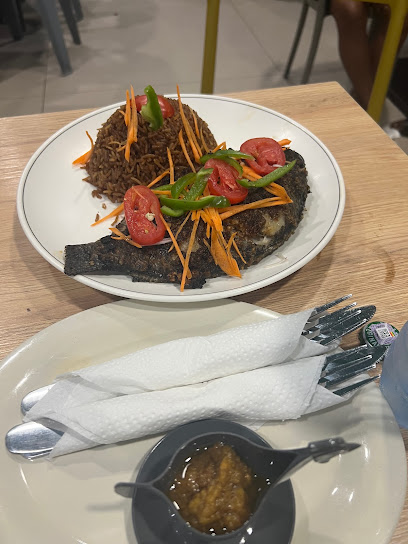
Okory3 Tree Restaurant
Experience authentic Ghanaian cuisine amidst nature at Okory3 Tree Restaurant in Dixcove.
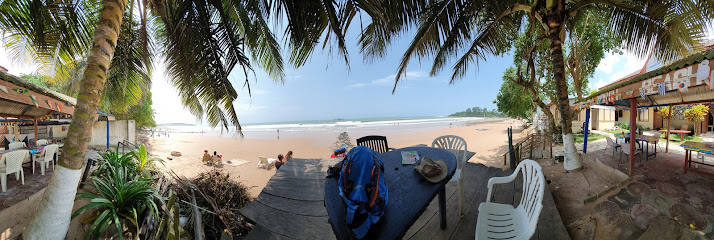
Three05 Restaurant & Bar
Discover authentic Ghanaian flavors blended with international cuisine at Three05 Restaurant & Bar in Accra.
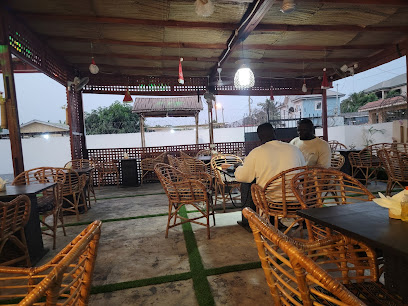
Zanzibar
Discover Zanzibar in Axim: A grill paradise where fresh flavors meet coastal charm for an unforgettable dining experience.
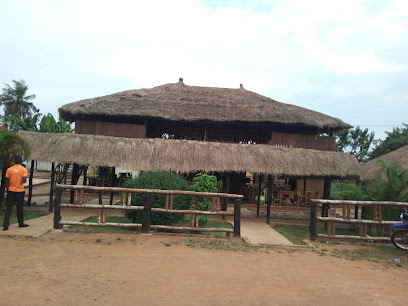
Markets, malls and hidden boutiques
Achimota Mall
Experience shopping, dining, and entertainment at Achimota Mall, Accra's premier shopping destination offering a taste of local culture.
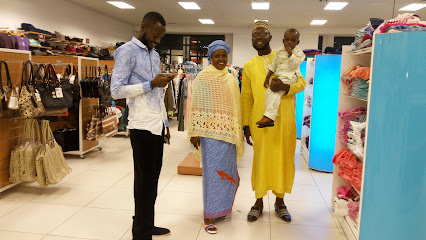
West Hills Mall
Explore West Hills Mall in Accra for a unique shopping experience with diverse stores, fantastic dining, and fun entertainment in a serene setting.
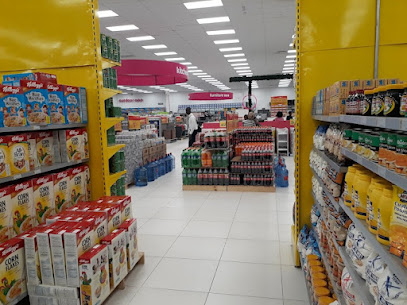
Shoprite West Hills
Experience the vibrant shopping culture at Shoprite West Hills, Accra's premier supermarket offering a wide range of local and international products.
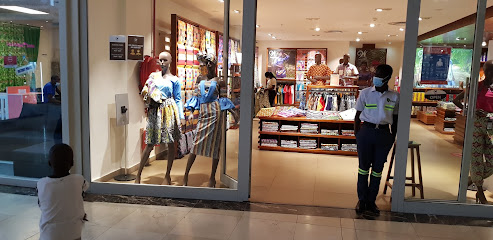
Junction mall
Discover Junction Mall: Accra's vibrant shopping paradise with diverse retail, dining, and entertainment options for every traveler.
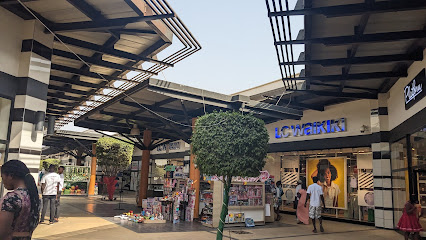
Mankessim Central Market
Discover the heart of Ghanaian culture at Mankessim Central Market, where vibrant stalls and local flavors await your exploration.
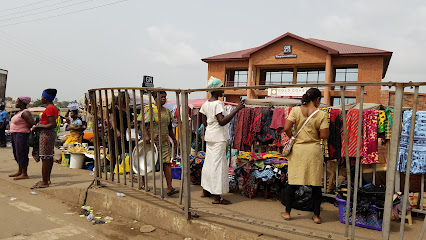
Oxford Street Mall Osu
Explore the vibrant Oxford Street Mall in Osu, Accra, where shopping, dining, and entertainment converge in a lively atmosphere.
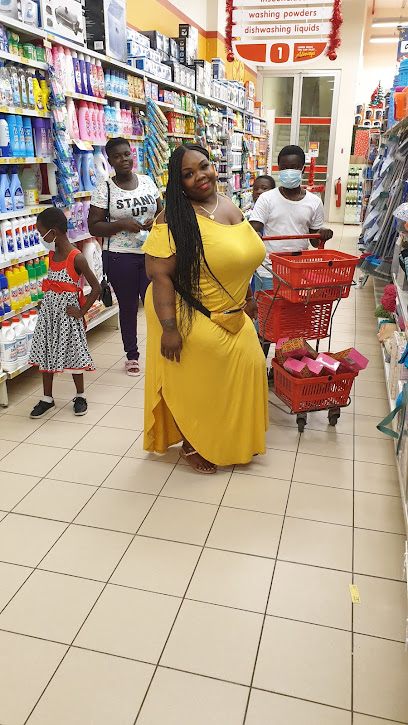
Challenge Bookshop
Explore the world of literature at Challenge Bookshop, Accra's favorite destination for book lovers of all ages.
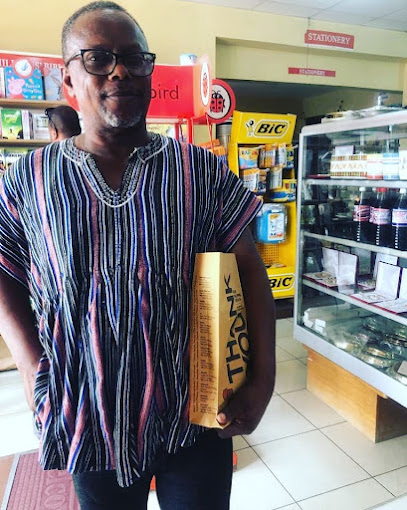
Melcom Mankessim
Explore Melcom Mankessim, a bustling shopping mall in Ghana offering a diverse range of products and a glimpse into local culture.
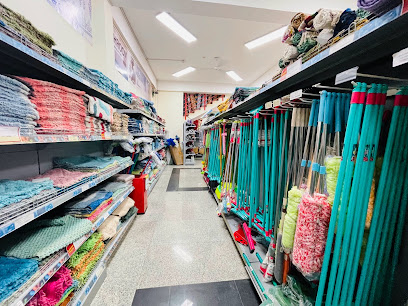
Mykit Shop : Dansoman-Camara Branch
Discover Mykit Shop in Dansoman-Camara for the finest poultry and essential tools, combining quality and local charm in a unique shopping experience.
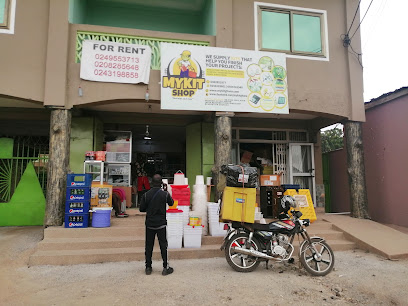
Wild Gecko Handicrafts
Explore the vibrant world of Ghanaian crafts at Wild Gecko Handicrafts, your destination for unique souvenirs and cultural experiences in Accra.
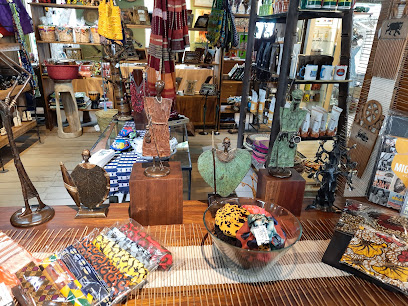
Pedu Junction
Discover Pedu Junction, a vibrant historical landmark in Cape Coast, where tradition meets modernity in the heart of Ghana.
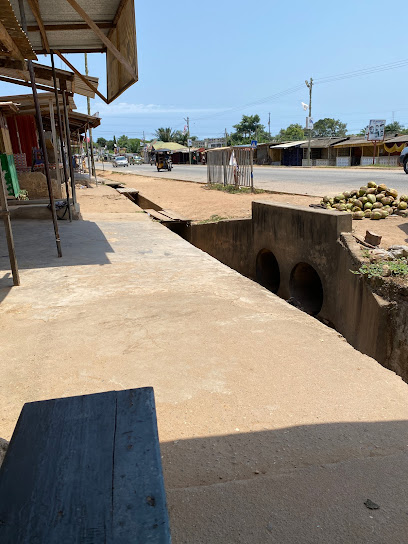
Global Mamas
Explore the essence of Ghanaian craftsmanship at Global Mamas, your go-to destination for unique clothing, accessories, and beauty products in Accra.
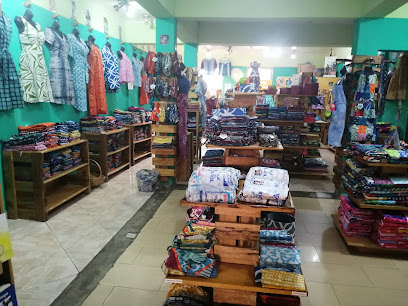
Escape3Points
Discover the charm of Points at Escape3Points, where comfort meets local culture in a serene hotel setting.
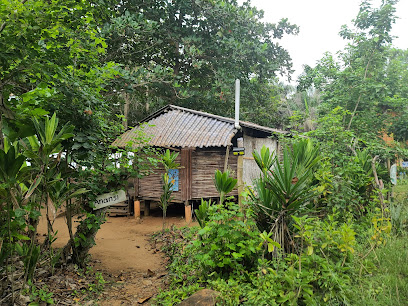
Cape Three Points
Discover the breathtaking landscapes and serene beaches of Cape Three Points, a natural gem on Ghana's southern coast perfect for nature lovers and adventure seekers.
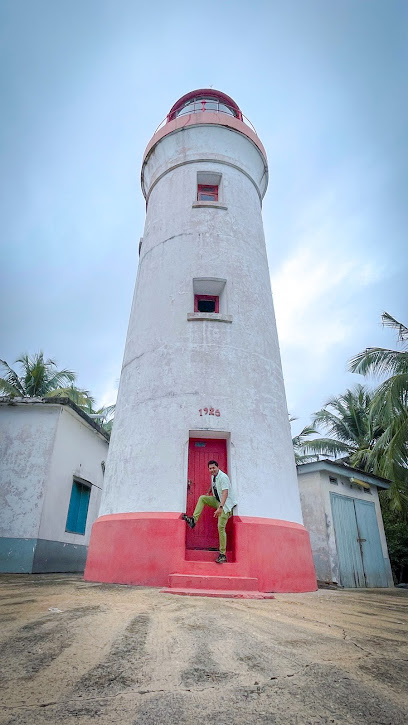
Me3 Cafe and Pastry Shop
Discover the cozy charm of Me3 Cafe and Pastry Shop in Kakumdu, a haven for coffee lovers and pastry enthusiasts.
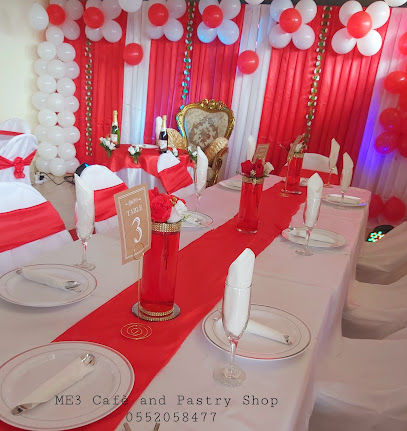
Essential bars & hidden hideouts
Zanzibar
Experience the rich flavors of Ghana at Zanzibar, the premier grill bar in Axim, where culinary delights meet a vibrant atmosphere.
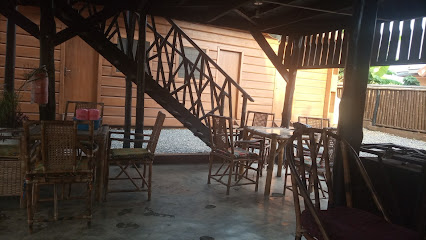
Next Level Pub
Discover the lively atmosphere and affordable drinks at Next Level Pub in Nkwanta, a perfect spot for unwinding and mingling with locals.

Abrantie spot
Experience authentic Ghanaian flavors at Abrantie Spot, a lively grill restaurant known for its delicious grilled dishes and vibrant atmosphere.
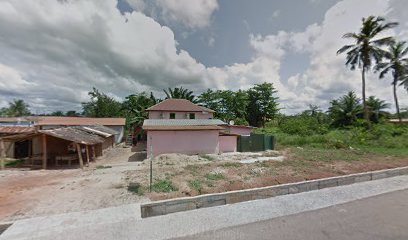
Aya Beach Bar
Discover the vibrant Aya Beach Bar in Princess Town, where stunning ocean views meet delicious cocktails and local cuisine for an unforgettable experience.
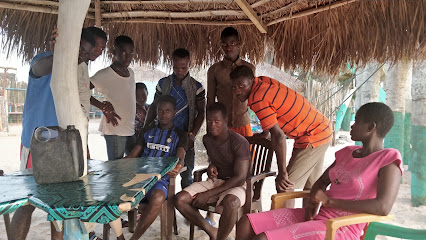
Lawmaker Bar, Motorbike & Bicycle Rentals & Tour Guide
Explore Ghana's stunning landscapes and vibrant culture at Lawmaker Bar, your go-to spot for motorbike rentals and refreshing drinks in Dixcove.
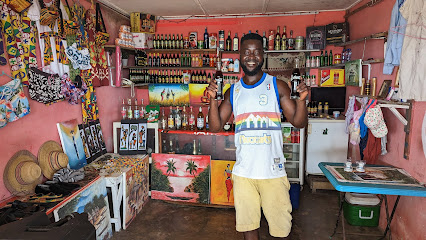
Beachcomber Bar and Restaurant
Discover the flavors of Axim at Beachcomber Bar and Restaurant, where local cuisine meets breathtaking ocean views in a vibrant coastal setting.
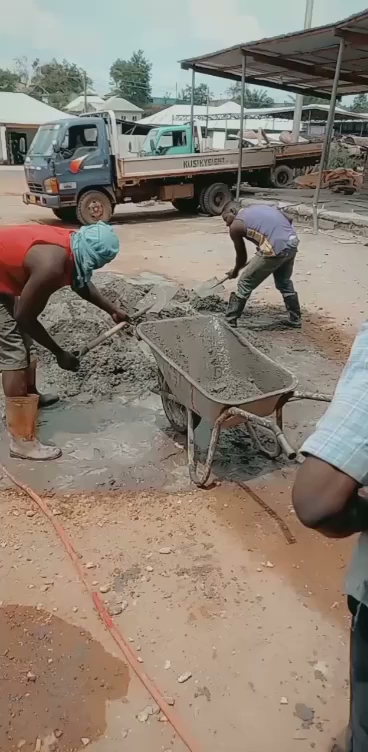
Exodus Bar & Grill
Discover the vibrant Exodus Bar & Grill in Funko, where delicious food and refreshing drinks create the perfect atmosphere for relaxation and socializing.
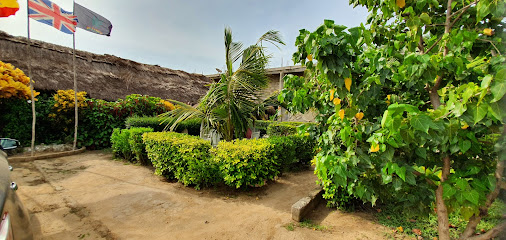
SPOON CITY PUB
Discover the vibrant atmosphere of Spoon City Pub in Nkroful, Ghana, where local flavors and friendly faces await you.
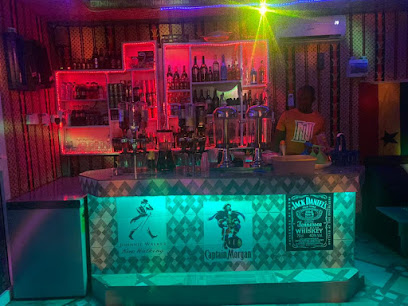
Bar
Discover the heart of Axim's nightlife at this lively bar, blending local culture with refreshing drinks and a welcoming vibe.

Sunset Pub & Grill
Experience vibrant nightlife at Sunset Pub & Grill, where delicious food and refreshing drinks meet stunning sunset views in Apowa.
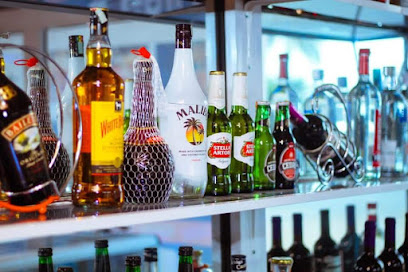
Item 13 Spot
Experience the vibrant nightlife of Boekrom at Item 13 Spot, where local culture meets refreshing drinks in a lively setting.
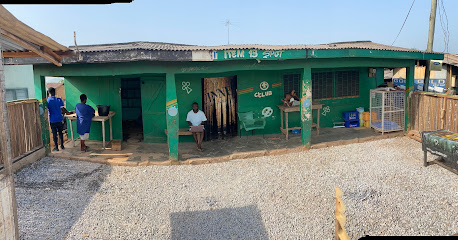
TROPICAL Beach BAR
Discover Tropical Beach Bar, a vibrant seaside retreat in Dixcove, where refreshing cocktails and stunning ocean views await your arrival.
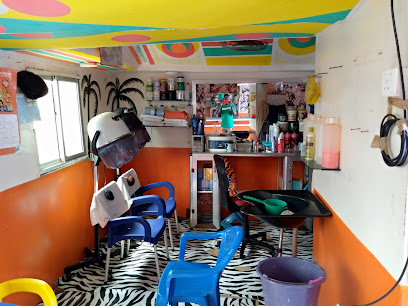
Ahantapalms
Experience the vibrant atmosphere and stunning ocean views at Ahantapalms, a must-visit bar in Dixcove for a refreshing getaway.
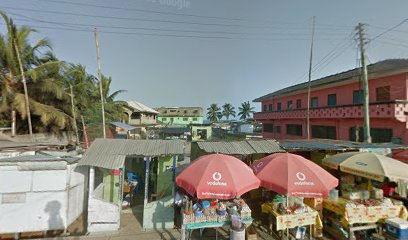
Butterfly Pub
Experience the vibrant nightlife of Agona at Butterfly Pub, where refreshing drinks and a lively atmosphere await every visitor.
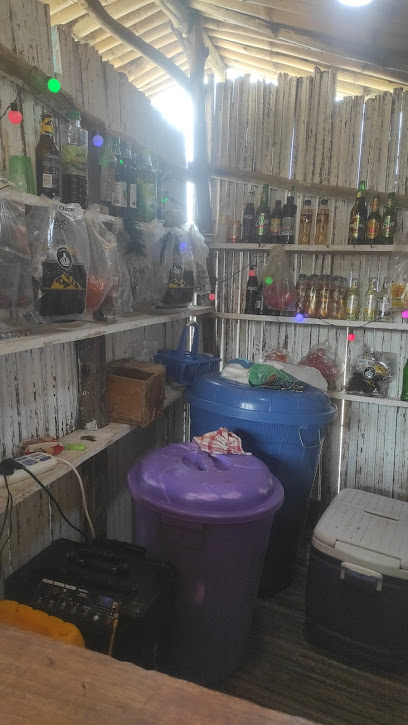
Local Phrases about Cape Three Points
-
- HelloEte sen
[eh-teh sen] - GoodbyeKaa tso
[kaa tso] - YesAane
[aa-neh] - NoDaabi
[daa-bee] - Please/You're welcomeMesere
[meh-seh-reh] - Thank youMedaase
[meh-daa-seh] - Excuse me/SorryKyerɛ me
[che-ree meh] - How are you?Wo ho te sen?
[woh hoh teh sen] - Fine. And you?Adɛn. Na wo ho?
[ah-dehn. nah woh hoh] - Do you speak English?Wo nnye Englisi kasa?
[woh nnyeh eng-lee-see kah-sah] - I don't understandMe nni adeɛ
[meh nnee ah-deh]
- HelloEte sen
-
- I'd like to see the menu, pleaseMinni bɔ menu no
[min-nee boh meh-noo no] - I don't eat meatMe nni nyansa
[meh nnee nyahn-sah] - Cheers!Afehyia pa
[ah-feh-hee-ya pah] - I would like to pay, pleaseMinni bɔ wɔn, mesere
[min-nee boh wohn, meh-seh-reh]
- I'd like to see the menu, pleaseMinni bɔ menu no
-
- Help!Boa me!
[boh-ah meh] - Go away!Dabi!
[daa-bee] - Call the Police!Kyerɛ nkurɔfo!
[che-ree en-koo-roh-foh] - Call a doctor!Kyerɛ dokita!
[che-ree doh-kee-tah] - I'm lostMinni hu
[min-nee hoo] - I'm illMe yare
[meh yah-reh]
- Help!Boa me!
-
- I'd like to buy...Minni bɔ...
[min-nee boh...] - I'm just lookingMe nni hwee
[meh nnee hweh] - How much is it?Agya nti na wɔte?
[ah-jah ntee nah woh-teh] - That's too expensiveAgya yɛ firi firi
[ah-jah yeh fee-ree fee-ree] - Can you lower the price?Wopɛ sika bebree?
[woh-peh see-kah beh-bree]
- I'd like to buy...Minni bɔ...
-
- What time is it?Agya nti na edidi so?
[ah-jah ntee nah eh-dee-dee soh] - It's one o'clockEdidi so koro
[eh-dee-dee soh koh-roh] - Half past (10)Edidi so daa (10)
[eh-dee-dee soh daa (10)] - MorningAnɔpa
[ah-noh-pah] - AfternoonAwia
[ah-wee-ah] - EveningAnwummerɛ
[ahn-woo-meh-reh] - YesterdayNkɔso
[en-koh-soh] - TodayƐda
[eh-dah] - TomorrowƐfi
[eh-fee] - 1Bɔ
[boh] - 2Mmienu
[mmee-eh-noo] - 3Mmiɛnsa
[mmee-ehn-sah] - 4Ɛnan
[eh-nahn] - 5Enum
[eh-nuhm] - 6Nsia
[nsee-ah] - 7Nson
[nsohn] - 8Nwɔtwe
[nwoh-tweh] - 9Kronon
[kroh-nohn] - 10Du
[doo]
- What time is it?Agya nti na edidi so?
-
- Where's a/the...?Ɛhe dɛn...?
[eh-heh dehn...?] - What's the address?Agya adwumadi?
[ah-jah ah-dwoo-mah-dee?] - Can you show me (on the map)?Wopɛ nea minni bra (wɔ map no)?
[woh-peh neh-ah min-nee brah (woh map no)?] - When's the next (bus)?Agya edidi so na ɛkɔ?
[ah-jah eh-dee-dee soh nah eh-koh?] - A ticket (to ....)Kɔn
[kohn]
- Where's a/the...?Ɛhe dɛn...?
History of Cape Three Points
-
Cape Three Points has been inhabited for thousands of years, with evidence of early settlements by indigenous tribes such as the Ahanta people. These early inhabitants were known for their advanced fishing techniques and trade practices along the Gulf of Guinea. Archaeological findings suggest that they lived in harmony with their natural environment, utilizing the rich marine resources and fertile lands.
-
The history of Cape Three Points took a dramatic turn in the late 15th century when Portuguese explorers first arrived. They named the area 'Cabo Tres Pontas,' referring to the three distinct promontories that make up the cape. The strategic location of Cape Three Points attracted other European powers, including the Dutch and the British, who established trading posts and forts along the coast. These colonial powers were primarily interested in the lucrative trade of gold, ivory, and slaves.
-
Fort Metal Cross, originally known as Fort Dixcove, is one of the prominent historical landmarks near Cape Three Points. Built by the British in 1692, the fort was a key site during the trans-Atlantic slave trade. It served as a holding point for enslaved Africans before their forced journey across the ocean. Today, the fort stands as a somber reminder of this dark chapter in history and has been designated as a UNESCO World Heritage Site.
-
The Cape Three Points Lighthouse, constructed in 1925 by the British, is another significant historical landmark. It was built to aid maritime navigation along the treacherous coast of the Gulf of Guinea. The lighthouse remains operational and is an important navigational aid for ships traveling between the ports of Takoradi and Accra. It also offers panoramic views of the surrounding landscape, making it a popular attraction for visitors.
-
The area around Cape Three Points is rich in cultural heritage, with vibrant traditions and festivals celebrated by the local Ahanta people. One such festival is the Kundum Festival, which is celebrated annually to mark the harvest season. The festival features traditional music, dance, and rituals that honor the ancestors and seek blessings for the community. Visitors to Cape Three Points can experience these cultural festivities and gain insights into the local way of life.
-
Cape Three Points is not only historically significant but also ecologically important. The region is home to the Cape Three Points Forest Reserve, which is a biodiversity hotspot. Efforts are being made to conserve the unique flora and fauna of the area, promoting ecotourism as a sustainable way to support local communities. Visitors can explore the lush rainforest, pristine beaches, and diverse wildlife, making it a perfect destination for nature enthusiasts.
Cape Three Points Essentials
-
Cape Three Points is located in the Western Region of Ghana. The nearest major city is Takoradi, which has an airport (Takoradi Airport) serviced by domestic flights from Kotoka International Airport in Accra. From Takoradi, you can hire a taxi or take a tro-tro (shared minibus) to reach Cape Three Points. The journey typically takes around 1.5 to 2 hours by road.
-
Within Cape Three Points, the most common mode of transportation is walking or hiring a local taxi. For longer journeys, tro-tros are a cost-effective option. Motorbike taxis, known locally as 'okadas,' are also available but be sure to negotiate the fare before your ride. Renting a car from Takoradi can provide more flexibility for exploring the surrounding areas.
-
The official currency in Ghana is the Ghanaian Cedi (GHS). Credit and debit cards are accepted in some hotels and larger establishments, but it is advisable to carry cash for smaller vendors and remote areas. ATMs are available in Takoradi, so it’s wise to withdraw sufficient cash before heading to Cape Three Points.
-
Cape Three Points is generally safe for tourists, but standard precautions should be taken. Avoid walking alone at night and keep an eye on your belongings in crowded areas. While there are no specific high-crime areas targeting tourists, it's best to stay vigilant and aware of your surroundings. Always use reputable taxis or transportation services.
-
In case of an emergency, dial 999 for immediate assistance. The nearest medical facilities are located in Takoradi, so it is essential to have travel insurance that covers medical emergencies. For minor health issues, there are local pharmacies where you can purchase over-the-counter medications.
-
Fashion: Do dress modestly, especially when visiting villages and local communities. Avoid overly revealing clothing. Religion: Do respect local customs and traditions, and ask for permission before taking photos of people or sacred sites. Public Transport: Do be respectful and courteous to fellow passengers. Don't engage in loud or disruptive behavior. Greetings: Do greet people with a handshake and a smile. It's customary to ask about one's well-being before any transaction or conversation. Eating & Drinking: Do try local dishes and accept food offerings graciously. Don’t waste food or refuse hospitality, as it is considered impolite.
-
To experience Cape Three Points like a local, visit the local markets where you can buy fresh produce and handmade crafts. Engage with the community; the locals are often friendly and willing to share stories about their culture and history. Don't miss the opportunity to visit the Cape Three Points Lighthouse, which offers stunning views of the coastline. For a unique experience, join a guided tour to explore the nearby forests and learn about the local flora and fauna.
Nearby Cities to Cape Three Points
-
Things To Do in Sekondi-Takoradi
-
Things To Do in Cape Coast
-
Things To Do in Kumasi
-
Things To Do in Abidjan
-
Things To Do in Accra
-
Things To Do in Koforidua
-
Things To Do in Sunyani
-
Things To Do in Ho
-
Things To Do in Kpalimé
-
Things To Do in Lomé
-
Things To Do in Yamoussoukro
-
Things To Do in Notse
-
Things To Do in Aneho
-
Things To Do in Sassandra
-
Things To Do in Lokossa








